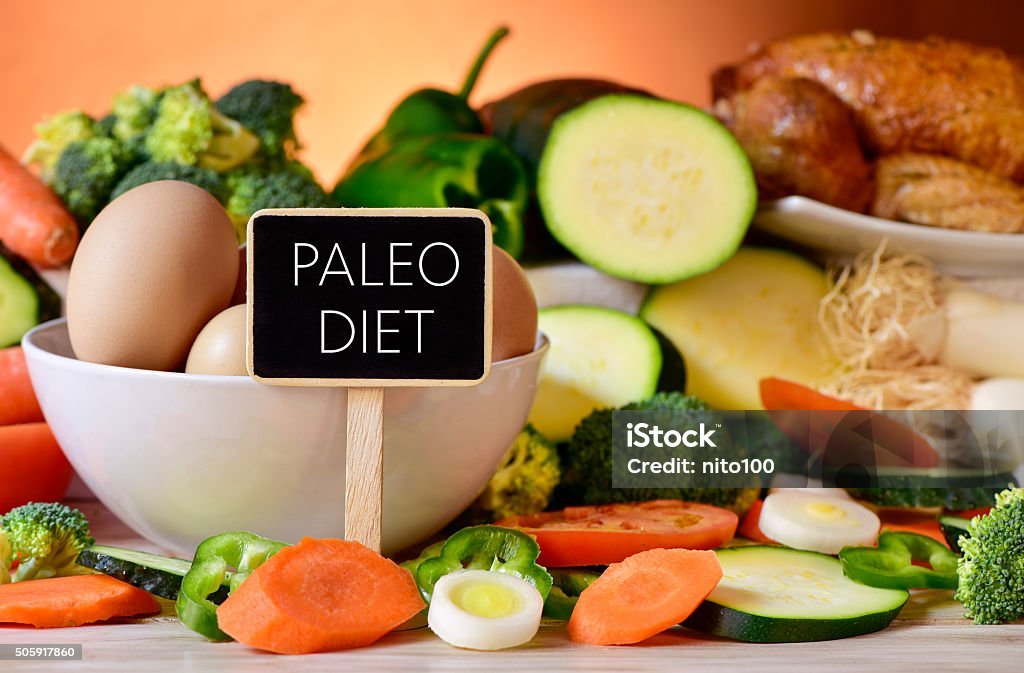In this world of fad diets the truth gets harder to spot among myths and we need resources like these. Ketogenic and paleo full of health claims, vegan ladened with promises What, then is the real truth behind today’s top popular diets guide? Let us dig into it.
The Ketogenic Diet (Keto): Popular Diets Guide

Keto or the ketogenic is popular professional diets that documented in recent time on internet and social medias, so many health activists interest done a serious kind of research to prevent us from consuming such mad approach when it comes down to helping our state of well being inside out. So what is the ketogenic diet, and why is it so fascinating?
What is the Ketogenic Diet?
The ketogenic diet is characterized by high-fat, moderate protein, and low-carbohydrate intake. The primary goal of this diet is to induce a metabolic state called ketosis, where the body shifts its main source of fuel from carbohydrates to fats. In this state, the liver converts excess fat into ketone bodies, which serve as an alternative energy source. The ketogenic diet has also been recognized for its potential role in protecting against cancer development and is considered one of the popular diets for those seeking to enhance their health and metabolic function.
The Science Behind Ketosis:
It comes about when you restrict carbohydrates significantly below 50g a day, because then your glycogen stores run out. This lowers insulin levels and allows stored fat to be release in the form of ketones into fatty acids. These ketone bodies circulate in the blood and are processed by various cells, including those of your brain—as an alternative fuel. It is a core actor in the ketogenic diet which home many health benefits including weight loss, metabolic improvement and help with cognitive function. (1)
Benefits of the Ketogenic Diet:
Weight Loss:
One of the most common perks which come from the ketogenic diet is its quick weight reduction outcomes. When one puts his body on low carb diet but he increases the fat, stored fats in your bodies burn and leads to weight loss. This has a lot to do with burning stored fat.
Improved Blood Sugar Control:
The ketogenic diet may also be beneficial for people with type 2 diabetes or insulin resistance, as it can help maintain a steady blood sugar levels. This lower carb intake of the diet means not as much insulin is needed to be made in order to manage blood sugars.
Increased Mental Focus:
One claim is that ketogenic diet followers experience increased concentration and mental clarity. Ketones (the main energy source in this type of diet) are notorious for improving cognitive performance. In fact, according to a few studies it is even believed that ketones may be neuroprotective.
Reduced Inflammation:
For example, chronic inflammation is associated with several diseases like heart disease and autoimmune conditions. There is some evidence to suggest that the ketogenic diet may lower inflammation which in turn could reduce your risk for these conditions.
Challenges and Considerations:
Despite its potential benefits, the ketogenic diet is not without its challenges and considerations:
Exhibition of Initial Side Effects:
When transitioning from a standard diet to a ketogenic one, many people experience what is commonly known as “keto flu.” Symptoms can include fatigue, headache, nausea, and irritability. These effects usually occur within the first few days to weeks but tend to subside as the body adjusts to using ketones for energy.
Risk of Various Nutrient Deficiencies:
The ketogenic diet may lead to deficiencies in essential nutrients such as potassium and vitamin C. This is due to the limited consumption of fruits and vegetables and the restriction of starchy vegetables and grains. Supplementation may be necessary to prevent deficiencies.
Sustainability Issues:
While some individuals may find the ketogenic diet sustainable over the long term, others may struggle with its restrictions, particularly in social situations or when dining out. The diet’s limitations can make it challenging to adhere to consistently.
Potential Cardiovascular Risks:
There is controversy whether the ketogenic diet adversely affects cardiovascular health. One theory is that the keto diet can improve your cholesterol numbers and reduce heart disease risk by increasing levels of high-density lipoprotein (HDL) cholesterol while reducing low density lipoprotein (LDL) or total LDL, as some research suggests. Yet questions still linger about the effects of eating more saturated fat decades into the future.
Keto offers good news: weight loss, balanced blood sugar/hormones, a mental edge and less inflammation. It is important to understand, though; its pitfalls and constraints. Always visit a healthcare or registered dietitian and consult wether if the ketogenic way of eating is okay for your health goals. This method is common among many diets and should be taken in mind with care so as to get the best out of it, while keeping its potential negative aspects at bay.
2. Paleo Diet:

As we know, there are a lot of strange diet is showed in front all the world. One of them is incredibly dangerous to any wielder, one which demands the acolyte literally eat cotton wool balls. On the other hand, there are also those that have incorporated healthy eating and their new way a lifestyle of losing weight into people´s life.
Pa leo diet is one of these popular diets. In this essay, I will talk abut its fundamental theories, principles and risks.
What is the Paleo Diet?
The Paleo diet, inspired by the eating habits of our Paleolithic ancestors, advocates consuming foods that were available before agriculture, such as meat, fish, fruits, and vegetables. Proponents believe that our genetics have remained largely unchanged since then, making these foods more aligned with our evolutionary biology. By mimicking ancient dietary patterns, the Paleo diet aims to offer a more natural and healthful eating approach, contrasting with modern, processed diets. This diet seeks to simplify nutrition by focusing on whole, unprocessed foods, suggesting that doing so can optimize health and well-being.
Key Principles of the Paleo Diet:
Emphasis on Whole Foods:
Whole, unprocessed foods containing no artificial preservatives or colorings are the foodstuffs that form the basis of a Paleo Diet Such a diet entails lean sources of animal protein (lean meats, fish and seafood) and plenty of vegetables as well as fruit with the odd nuts/seeds. Those of who support it think that these are rich in vital minerals and vitamins which are a must for the health.
Exclusion of Processed Foods:
The diet excludes processed foods such as bread, sugar, mayonnaise, ketchup, chocolate, sausages, butter, and meat broth. Advocates argue that these products are high in saturated fats and carbohydrates, which may contribute to conditions like diabetes, weight gain, and poor skin health.
Elimination of Grains and Legumes:
Grains and legumes are not included in the Paleo diet. This means avoiding wheat, oats, barley, rye, corn, rice, beans, peas, lentils, and similar foods. Supporters claim that these items contain compounds that can burden the liver, negatively affect the endocrine and nervous systems, and potentially lead to early sexual maturation in children.
Focus on Healthy Fats:
The Paleo diet encourages the consumption of healthy fats from sources like nuts, seeds, avocados, and fatty fish. These fats provide essential fatty acids, which are beneficial for health and can help strengthen the immune system, particularly during colder seasons.
Potential Benefits of the Paleo Diet:
Weight Loss:
The Paleo diet promotes the consumption of whole, nutrient-dense foods while excluding processed junk foods. This approach can aid in weight loss and improve body composition by encouraging healthier eating habits.
Improved Blood Sugar Control:
Research suggests that the Paleo diet may enhance blood sugar control and increase insulin sensitivity. This can be particularly beneficial for individuals with type 2 diabetes and metabolic syndrome.
Reduced Inflammation:
The Paleo diet is an anti-inflammatory meal plan that emphasizes whole, minimally processed foods and limits grains and legumes (which are not paleo) – both of which can contribute to inflammation. This may reduce the incidence of chronic diseases such as food intolerance and allergies that are related to inflammation.
Increased Nutrient Intake:
Due to its emphasis on natural, unprocessed foods, the diet ensures higher intake of vitamins and minerals as well as proteins and fibers. Increased intake of nutrients can help improve overall health, recovery and also increase focus alertness and cognition.
Challenges and Considerations:
Although the paleo diet has significant potential benefits, several challenges and considerations must be acknowledged and addressed:
Nutrient Deficiencies:
The Paleo diet excludes entire food groups, such as grains and legumes, which can lead to nutrient deficiencies. Grains are a major source of fiber, B vitamins, iron, and magnesium. To mitigate these deficiencies, it is crucial to find suitable alternatives that provide these essential nutrients.
Cost and Accessibility:
That and the Paleo diet using new, unprocessed foods can be expensive to consistently implement. For many, these foods are difficult to find and pay for.
Social and Practical Considerations:
Adhering to a Paleo diet might also seem difficult in some situations such as social events or when eating out, simply due to the fact that many restaurants do not have really options. It may take more planning and effort to stick with the diet long-term.
Lack of Long-Term Research:
Although short-term research has demonstrated a number of advantages to the Paleo diet, including improved blood pressure and triglyceride levels, longer longitudinal studies are necessary. The long-term consequences on health broadly or cardiovascular risk, and mortality are less well defined.
Weight Loss vs. Health Promotion “So, how do you keep it off?” It concurs with the concept that contemporary foods are causing chronic illnesses, but its downfalls should not be ignored. Those interested in trying the paleo diet should confer with a registered healthcare provider or dietician to decide whether this eating plan is consistent with their personal health goals and needs, while potentially making any appropriate adjustments to maximize its benefits. Given its prevalence in many popular dietary formats, this way of eating does lend itself to becoming more effective and sustainable with some careful planning and guidance. (2)
See also: Fitness Motivation Tips: 10 Proven Strategies to Stay on Track
3. Vegan Diet: One of the Popular Diets Guide

The vegan lifestyle has gained a popularity spike in the lastfor past few years. Originally considered as a radical regard to the ethical consumption of people, eventually served by several health benefits paving way for vegan living. The foundations of the vegan diet and how it impacts health, people and planet.
What is the Vegan Diet?
The vegan diet is a plant-based eating style that abstains from all animal-derived foods — including meat, dairy products and eggs among other things. Instead of animal-sourced ingredients, while vegetarianism can include a few types of foods such as milk and eggs that fall under the spectrum to an extent—vegan is about life itself, moving far beyond what you do or don’t eat; your clothing or even just every day personal care. That means no animal is used, abused or killed in the process. Hence it has a strong ethical and environmental aspect which makes even more people find this as one of the most popular diets ever!
Key Principles of the Vegan Diet:
Plant-Based Foods:
At its core, the vegan diet is one based on plant foods like fruits and vegetables, grains—especially whole grains—and legumes such as beans; nuts; seeds. They are high in nutrients, including fiber, vitamins and minerals – some also contain antioxidants. They contain no cholesterol and are rich in natural unsaturated fats — which makes them the staple for all dishes prepared at home as well as those consumed away from family tables.
Exclusion of Animal Products:
One of the building blocks is that no animal based product can be included in your vegan diet. Prohibited foods: Meat, poultry and fish (including shellfish), eggs, honey or dairy Cruelty, ethics needs Negligible environment impact health Vegetarians rely on plant based sources for their nutrition needs, but vegans cannot have any animal product at all.
Focus on Whole Foods:
Yes, there are processed alternatives for familiar non-vegan products but most vegans also choose to go the route of eating whole foods (very little processing). That means opt for whole grains rather than refined ones, fresh fruit and vegetables over juices or dried fruits; also avoid foods with preservatives and chemicals since these do not provide optimum health benefits.
Eco-Friendliness:
The vegan diet is problematic with a green lifestyle. Compared to animal-based diets, it tends to be kinder on the environment and generally uses less natural resources, leads in lower greenhouse gas emissions & has a lesser water footprint.
Potential Benefits of the Vegan Diet:
Heart Health:
A well-planned vegan diet could lower cholesterol levels, blood pressure, and inflammation which is important to prevent heart disease. Fruits, vegetables and other plant-based foods are naturally low in saturated fat, heart-healthy nutrients like fiber, antioxidants & phytochemicals.
Weight Management:
Vegan diets are often lower in calories and saturated fat compared to omnivorous diets, which can aid in weight loss and maintenance. High-fiber foods like fruits, vegetables, and whole grains enhance satiety and help control appetite, supporting a healthy weight.
Lower Risk of Chronic Diseases:
Research has shown that vegan diets can reduce the risk of developing chronic diseases, which includes type 2 diabetes, specific cancers and hypertension. Plant-based foods may provide potentially higher levels of vitamins, minerals and phytochemicals that have their own healthful effects on preventing or managing chronic diseases.
Environmental Sustainability:
Eating vegan shrinks your environmental footprint as it saves water, land and energy resources – not to mention the greenhouse gas emissions from animal agriculture. Finally, moving to a plant-based diet is good for climate change and the environment.
Challenges and Considerations:
Although there are greatly significant advantages from a vegan diet, it is important to address the challenges and considerations involved:
Nutrient Deficiencies:
A vegan diet that is poorly planned can lead to deficiencies in important nutrients like vitamin B12, iron, calcium, omega-3 fatty acids and zinc. Vegans should not neglect their nutrient intake and replace it through fortified foods, supplements or plant-based options to stay healthy.
Social and Practical Considerations:
Veganism can be difficult to maintain in social situations, eating out and when travelling due to the lack of vegan options. Sticking to this diet takes a bit of care with meal planning and preperation, as well explaining what you can eat when out or in someone else’s house and dispelling misconceptions about veganism.
Potential for Highly Processed Foods:
Although veganism emphasizes whole foods, it is also easy to consume heavily processed oils and artificial fats in the form of fried or baked chips. While handy, oftentimes these items are laden with added sugars, sodium and unhealthy fats — not exactly ideal if the plant-based diet intends to accomplish real health values.
Individual Variability:
Typical A vegan diet impacts each person in various ways depending on genetic factors, lifestyle and overall dietary quality. Although there may be great health outcomes and benefits for an individual thriving on a vegan diet, other individuals might have with nutrient deficiencies or experience different health issues.
It is founded on the principles of compassion and sustainable eating, with additional potential benefits for trends associated to disease risk alike heart health, weight management etc. Whilst one of the recommended diets, it has its pros and cons. Nonetheless, there are many reasons to move with caution and think about how we might overcome these. While a balanced plant-based diet can be both healthful and satisfying — when planned properly — it may just support human health in ways that do no harm to the environment, with respect for all forms of life. (3)
4. Mediterranean Diet:

The Mediterranean diet—packed with fresh fruits, vegetables and whole grains known for being associated with a bevy of health benefits—is nothing new. Below, we’ll take a look at the major rules of this diet and see why it is considered one of the healthiest eating patterns globally.
What is the Mediterranean Diet?
The Mediterranean diet is a plant-based style of eating inspired by the traditional cuisines of countries like Greece, Italy, Spain and southern France that line The Meditterranean Sea. It promotes intake of fruits, vegetables and plant foods such as whole grains legumes (lentils or chickpeas) along with nuts and seeds. The cornerstone is healthy fats, such as olive oil; modest fish and poultry intake, with very limited red meat consumption and even less dairy (even though Mediterranean diet experiments have shown that milk in addition to cheese are both antioxidants); moderate wine drinking with meals. It is one of the most famous diets and it provides you with a wealth of health benefits even taste.
Key Principles of the Mediterranean Diet:
Plant-Based Foods: This includes whole grains, vegetables, fruits and beans. Fruits, vegetables, whole grains, legumes and nuts help you with essential vitamins minerals fiber antioxidants.
The diet encourages healthy fats: The Mediterranean Diet does not shy away from including fat in the menu, especially monounsaturated fatty acids derived from olive oil, nuts and seed as well as avocados. These fats are heart-healthy and excellent for brain health which promotes long life.
Moderate Consumption of Fish and Poultry: Fish and poultry are key protein sources, offering lean protein and essential nutrients like omega-3 fatty acids. Fatty fish such as salmon, sardines, and mackerel are valued for their heart-healthy omega-3s.
Red Meat in Moderation: Red meat is consumed, but usually just for special occasions. They tend to be replaced with plant-based proteins — legumes and nuts, which are all lower in saturated fat and cholesterol.
Wine with Meals: Red wine is regularly consume in moderate amounts by most people living around the Mediterranean Sea. Red wine is also packe with antioxidants, such as resveratrol and in small amounts can may be beneficial for the heart.
Potential Benefits of the Mediterranean Diet:
Heart Health: Helps minimize the risk of heart disease, stroke and high blood pressure (learn more here) Not only does it provide healthy fats, plant-based foods and moderate alcohol they improve heart health as well as anti-inflammatory.
Challenges and Considerations:
Despite its numerous benefits, it’s essential to be aware of some challenges and considerations associated with the Mediterranean diet:
Availability of Fresh Ingredients: The Mediterranean diet relies heavily on fresh, seasonal ingredients. These may be less accessible or affordable in certain regions or times of the year. However, frozen or canned alternatives can be used as convenient substitutes when fresh options are limit.
Alcohol Consumption: Moderate alcohol consumption, particularly red wine, is part of the Mediterranean diet. However, it’s important to exercise caution and moderation, especially for individuals with a history of alcohol abuse or certain medical conditions.
Cultural Adaptation: The Mediterranean diet is deeply root in the cultural traditions and culinary practices of Mediterranean countries. These practices may differ from individual preferences or cultural backgrounds. Nevertheless, the principles of the diet can be adapte to suit diverse tastes and culinary traditions.
Individual Variation: Like any dietary pattern, the effects of the Mediterranean diet can vary from person to person. Factors such as genetics, lifestyle, and overall dietary quality can influence these effects. It’s essential to personalize the diet to individual needs and preferences to optimize health outcomes.
The Mediterranean diet, a popular diets known for its health benefits, offers a delicious, balanced, and culturally rich approach to eating. It promotes health, longevity, and overall well-being. By incorporating its principles into your lifestyle, you can enjoy a lifetime of delicious meals while reaping its numerous health benefits. (4)
5. Intermittent Fasting: amazing Popular Diets Guide

Intermittent fasting (IF) has gained popularity for its potential benefits, including weight loss and improved metabolic health. Let’s explore its principles, methods, and the science behind its effects on the body.
What is Intermittent Fasting?
A brutally candid ingredient of optimal nutrition results in one of the highest-rating diets-Intermittent fasting, which is a trend that involves cycling between periods of eating and… Instead of what to eat, intermittent fasting deals with when you should refuel your body. Different approaches have different fasting and eating windows.
Key Principles of Intermittent Fasting:
Time-Restricted Eating: This method limits food intake to a specific time window each day. For example, the 16/8 method involves fasting for 16 hours and eating within an 8-hour window.
Alternate-Day Fasting: This method alternates between days of normal eating and days of fasting or significant calorie restriction. On fasting days, you may consume very few calories or none at all.
Modified Fasting: Methods like the 5:2 diet involve eating normally for most days and restricting calories on a few days. For example, eat normally for five days and limit intake to 500-600 calories on two non-consecutive days.
Potential Benefits of Intermittent Fasting:
Weight Loss: Intermittent fasting promotes calorie restriction and fat loss. By reducing the eating window, you may naturally consume fewer calories, leading to weight loss over time.
Improved Metabolic Health: It can improve markers like insulin sensitivity, blood sugar control, and cholesterol levels. Some studies suggest it may reduce the risk of type 2 diabetes and cardiovascular disease.
Cellular Repair and Longevity: Fasting triggers cellular repair processes such as autophagy, where cells recycle damaged components. Researchers believe this process contributes to the anti-aging effects of intermittent fasting.
Challenges and Considerations:
- Adherence and Sustainability: It may not suit everyone, and sticking to it long-term can be challenging. Some may experience increased hunger, irritability, or difficulty concentrating during fasting periods.
- Potential for Disordered Eating: Intermittent fasting could trigger disordered eating behaviors in some individuals, such as excessive or restrictive eating. Approach with caution and seek guidance if you have a history of disordered eating or other medical conditions.
- Individual Variability: The effects of intermittent fasting vary based on age, sex, genetics, and overall health. Listen to your body and adjust your regimen to meet your individual needs. (5)
Final Thought:
As we move through the labyrinth of ubiquitous diets, it is obvious that there are no golden rules for optimal health. Every diet has its fan base and a lot of success stories, but please proceed with caution! If you choose to get on one path in the long term think two times (or even more) because all these can backfire.
So instead of trying to find a fad-diet holy grail or one-size-fits-all diet that works best, we should embrace the diversity in our diets and champion individuality. When we attune to our bodies, and learn what works best for us as individuals — it takes the guesswork out of making choices that are truly nourishing.
The reality is that in order to maintain a truly healthy lifestyle, which resembles balance… moderation and enjoyment are your best allies. Choose to follow the ketogenic diet, paleo lifestyle or vegan philosophy – whatever you desire; but be led by curiosity and respect for food.


Thank you for your sharing. I am worried that I lack creative ideas. It is your article that makes me full of hope. Thank you. But, I have a question, can you help me?
Thank you for your sharing. I am worried that I lack creative ideas. It is your article that makes me full of hope. Thank you. But, I have a question, can you help me?